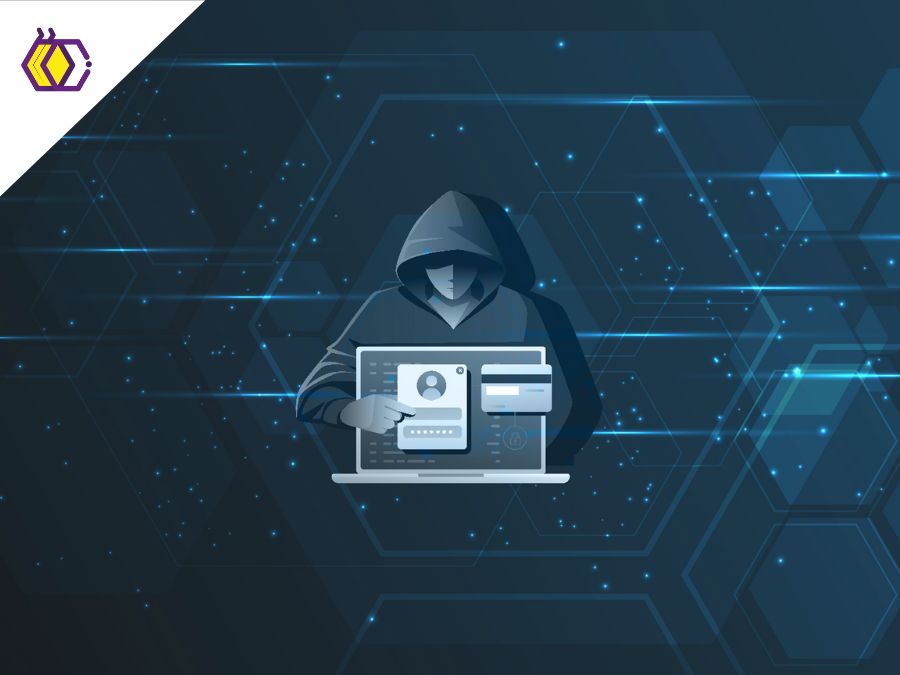

Ethical Hacker
(8 minutes of reading) In the dynamic technology landscape, where digital boundaries continue to expand, information security has become a paramount concern. In this context, ethical hackers emerge as digital warriors, defending systems against cyber threats. This article seeks to explore the fascinating world of ethical hacking, highlighting its importance, ethics and the skills needed to follow this path. The figure of the hacker, often shrouded in mystery and misunderstandings, takes on new contours when accompanied by the adjective "ethical". The ethical hacker, unlike his malicious counterpart, seeks to use his skills to protect and strengthen digital systems. Shall we explore this topic further? WHAT IS AN ETHICAL HACKER? The term "ethical hacker" refers to a cybersecurity professional who employs their skills to identify and fix vulnerabilities in systems, applications, and networks. Instead of exploiting loopholes for malicious purposes, these experts seek to strengthen digital security. IMPORTANCE OF AN ETHICAL HACKER 1- Strengthening Cyber Security: Ethical hackers play a crucial role in identifying security flaws before they are exploited by cyber criminals. Its proactive assessments help strengthen digital infrastructure, reducing the risk of attacks. 2- Protection of Sensitive Data: Companies and organizations trust ethical hackers to protect sensitive data, preventing breaches that could result in serious legal and financial consequences. 3- Ensuring Compliance: Ethical hackers help ensure compliance with regulations and security standards, ensuring that organizations meet all legal requirements. ETHICS IN THE WORLD OF ETHICAL HACKERS Consent, legality, confidentiality, and responsibilities are the 4 main pillars of ethics in the world of ethical hacking. An ethical hacker always operates with explicit consent. Before performing security testing, it is mandatory to obtain permission from the system owner. Additionally, you must maintain the confidentiality of sensitive information that may be discovered during your investigations. Responsibility is a fundamental pillar of hacker ethics. If a vulnerability is found, the ethical hacker immediately notifies the person responsible so that corrective measures can be taken. SKILLS NEEDED TO BE AN ETHICAL HACKER To be an ethical hacker you need the following skills: Deep Technical Knowledge: An ethical hacker must have solid knowledge in programming, operating systems, networks and security protocols. Analytical Thinking: The ability to analyze complex systems and identify potential vulnerabilities is essential to the success of an ethical hacker. Ethics and Integrity: In addition to technical skills, it is crucial to have a solid ethical foundation and integrity to ensure the trust of the organizations that hire these professionals. Communication Skills: Effectively communicating findings is vital. Ethical hackers often need to report their findings in a clear and understandable way to different audiences. HOW DO ETHICAL HACKERS ACT? These IT security experts play a crucial role in protecting companies against cyber threats. They assess and strengthen the security of your systems, networks and applications. Here are some ways they work with companies: 1- Penetration Testing: perform penetration tests to identify vulnerabilities in systems, networks, and applications. They simulate cyberattacks to discover security holes before cybercriminals can exploit them. The challenge here is to ensure testing can be carried out without impacting essential operations. 2- Security Assessments: In addition to penetration testing, these professionals also perform comprehensive security assessments, examining security policies, network configurations, access controls and other aspects to ensure that all areas are adequately protected. 3- Security Audits: Ethical hackers can perform security audits to ensure that security practices comply with industry regulations and standards. 4- Security Awareness Training: Ethical hackers play a role in educating and training employees to increase cybersecurity awareness. This helps prevent insider threats caused by human error. Today, companies face challenges in educating their employees about security practices. Ethical hackers develop simulated phishing campaigns and provide training to increase awareness and reduce the risk of attacks. 5- Proactive Reporting: Ethical hackers often report security flaws they discover proactively to the company's internal security teams. This approach allows organizations to fix issues before they can be exploited by malicious attackers. 6- Bug Bounty Programs: Some companies implement bounty programs, where they offer cash prizes or other incentives to ethical hackers who discover and report vulnerabilities. This encourages the security community to collaborate in identifying flaws. 7- Security Consulting: In addition to testing and assessments, ethical hackers often offer security consulting, advising companies on best practices and security measures to implement. OPPORTUNITIES FOR ETHICAL HACKERS To look for opportunities to work as an ethical hacker, you can explore several options. Below we list some. Job Sites Specializing in Cybersecurity: There are specific cybersecurity job sites, such as CyberSec Jobs, InfoSec Jobs, and even broader platforms such as LinkedIn, Indeed, and Glassdoor, using terms such as " ethical hacker", " penetration tester ", or " security consultant ." Participation in Online Communities: Be part of online communities, forums and social networks dedicated to cybersecurity. Many opportunities are shared in these spaces, and you can interact with professionals in the field to obtain information and guidance. Cybersecurity Conferences and Events: Attend conferences and events dedicated to cybersecurity. These events often provide networking and exposure opportunities for companies looking for security professionals. Cybersecurity Certifications: Obtain recognized certifications in cybersecurity, such as Certified Ethical Hacker (CEH), Offensive Security Certified Professional (OSCP), or other vendor-specific certifications. These certifications can increase your visibility in the market. Participation in Bug Bounty Programs: Explore bug bounty platforms such as HackerOne , Bugcrowd , and Synack , where companies offer rewards for finding and reporting vulnerabilities in their systems. This not only gives you hands-on experience but also highlights your skills. Professional Networking: Connect with cybersecurity professionals through local events, meetups, and interest groups. Many opportunities can arise through professional connections. IMPORTANCE OF ETHICAL HACKER FOR COMPANIES There are many advantages to having an ethical hacker on your team. Below we list some: 1- Identifying Vulnerabilities: Ethical hackers play a crucial role in proactively identifying vulnerabilities in a company's systems, helping to fix these issues before they can be exploited by malicious hackers. 2- Continuous Security Improvement: By performing penetration tests and security assessments, ethical hackers help companies continually improve their security postures by adapting to constantly evolving threats. 3- Compliance with Standards and Regulations: Many industries have cybersecurity standards and regulations to follow. Ethical hackers help companies ensure compliance, avoid penalties and protect reputations. 4- Prevention of Cyber Attacks: the proactive action of ethical hackers helps prevent cyber-attacks by identifying and correcting vulnerabilities before they can be exploited, thus protecting the company's data and assets. THE FUTURE OF THE ETHICAL HACKER 1- Artificial Intelligence in Cybersecurity: The use of AI is growing in cybersecurity, and ethical hackers will need to adapt their skills to face increasingly sophisticated threats. 2- Ethical Software Development: The ethical hacker of the future will play a vital role in ethical software development, ensuring that security is a priority from the beginning of the development lifecycle. In a digital world where security is imperative, the role of the ethical hacker becomes increasingly vital. These professionals play an essential role in data protection, ensuring the stability of critical systems and promoting a safer digital environment. However, it is crucial that this activity is carried out ethically and responsibly, to ensure that trust in the cybersecurity community remains strong. The future holds exciting and complex challenges for ethical hackers, but it also offers opportunities for innovation and continuous improvement in digital security.
Share this article on your social networks:
Rate this article:
[yasr_visitor_votes size=”medium”]



